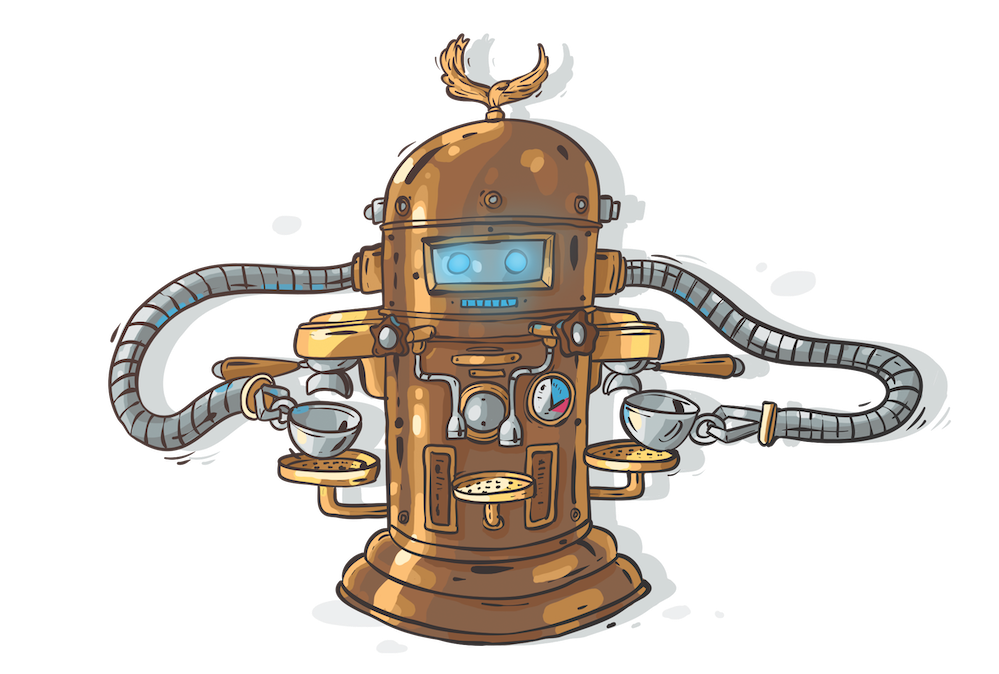Since the first coffee maker’s invention, centuries have passed. Although the essence of the coffee maker remains, its appearance and technology have leaped forward. We’re witnessing changes driven by natural evolution, affecting café guests, baristas, and, of course, our business partners. Artificial Intelligence in the Coffee Business is now becoming a part of this transformation, influencing how we brew, serve, and experience coffee.
The impact of science, research, and subsequent technology can benefit all of us but only to a certain extent. Technology, namely artificial intelligence (AI), is a great servant, but whether it’ll be a good master remains uncertain. In my view, people can’t always be replaced by machines or AI, especially in an industry that thrives on diversity, empathy, and natural human understanding. Nevertheless, they say AI can learn these traits over time. Can we imagine being served by a robot instead of a flesh-and-blood bartender or barista?

Let’s focus on coffee, eagerly embracing a certain degree of automation. Baristas encounter daily factors influencing their mood, which ultimately affects their performance and operations. Excessive stress is one of them. If there’s something that can save a barista time to be spent meaningfully elsewhere, it’s worth considering.
Consider technologies like the SP-9, capable of preparing filtered coffee with minimal barista intervention. This equipment allows setting parameters like total water volume and the number of ‘pours.’ Say, for 18g of coffee with 300g of water, dividing ‘pours’ into four or five could boost overall extraction and ensure consistent filtered coffee quality. The guest gets their desired filtered coffee, maintaining quality, and the barista saves minutes during busy hours.
Another way to simplify work for baristas and gain time is gravimetric technology, which operates espresso machines based on drink weight, replacing volumetric technology, primarily functioning based on the water volume pumped for individual coffee doses.
Let’s delve into the realm of artificial intelligence and how we can harness AI’s potential. Consider Ian Kissick, the 2023 English Barista Champion and founder of London’s Formative café. His recent podium presentation brought something unprecedented. Apart from using tablets as interactive menus and detailed presentations, Ian noted that AI, particularly ChatGPT, contributed significantly to the information and presentation structure. Some might see this as cheating, but Ian justified it by combining the structure and sensory perception of his drinks with information generated by ChatGPT.
It’s crucial to note that a ‘bot’ only has access to internet-available information. It operates solely on those data uploaded in a certain domain and essentially ‘distills’ them by feeding our prompts.
In essence, there’s nothing inherently wrong with this approach. However, just like we credit article authors or photographers for their work, acknowledging that our presentation, article, or work was generated by AI would be appropriate.
Technological progress is an integral part of our industry’s evolution and readiness for further growth. Artificial intelligence is a tool that can help us, yet in the long run, we need to assess its limits. Only the market and guests’ demands will show how much AI is desired in hospitality. AI’s potential should signify increased efficiency and possible problem-solving rather than replacing baristas and bartenders. A bar without a human touch might not attract many customers, and those who do visit might be driven merely by curiosity that fades over time.




